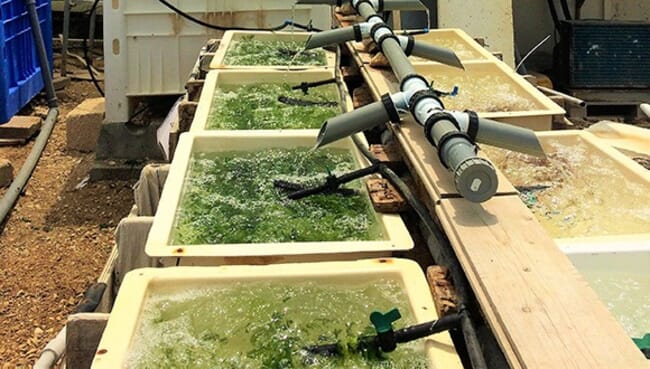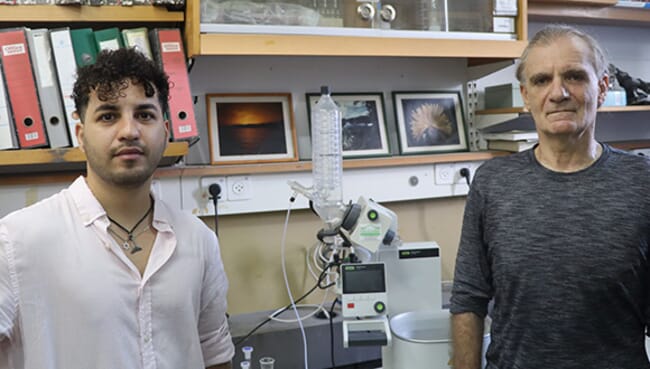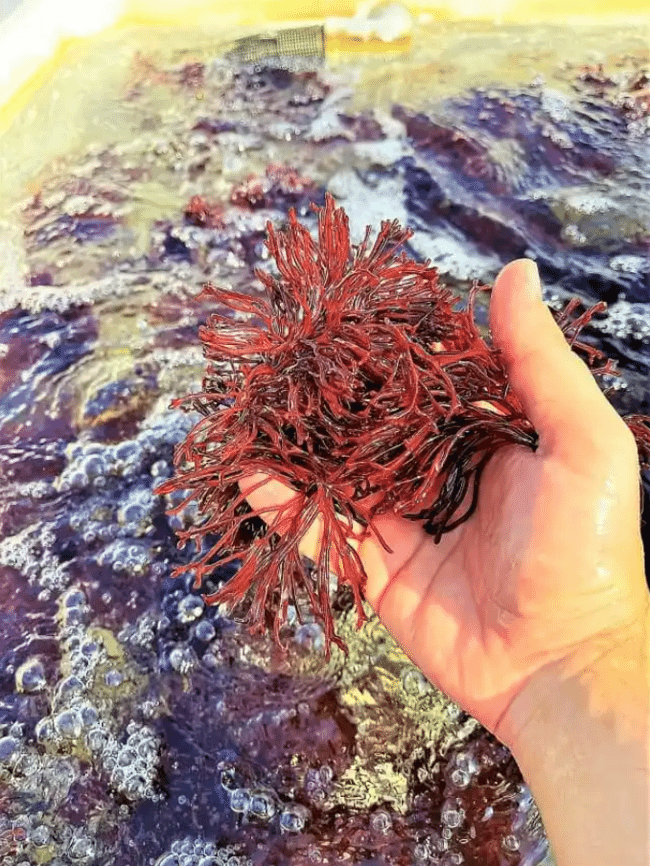
The new system allowed researchers to produce seaweed with elevated antioxidant and protective pigment levels.
After developing an innovative technology that enables the growth of seaweed enriched with proteins and minerals such as zinc, iron, iodine, magnesium and calcium for humans and animals, researchers from Tel Aviv University's School of Zoology at The George S Wise Faculty of Life Sciences and the Israel Oceanographic and Limnological Research Institute (IOLR) have made a new advancement. They succeeded in significantly increasing the ability of seaweed to produce healthy natural substances, focusing on enhancing the production of bioactive compounds that offer medical benefits to humans, such as antioxidants – the concentration of which was doubled in the seaweed; natural sunscreens – its concentration tripled and unique protective pigments of great medical value – the concentration of which increased by ten-fold.
The study was carried out with the innovative and sustainable approach of integrated aquaculture, which combines seaweed with fish cultivation, upgrading the seaweed while at the same time helping to purify the seawater and minimising negative environmental impacts. According to the researchers, these findings may serve the pharmaceutical, cosmetics, food and nutritional supplement industries.
Manufacturers of valuable compounds
The new development was led by PhD student Doron Ashkenazi of Tel Aviv University and the Israel Oceanographic and Limnological Research Institute, under the guidance of Prof Avigdor Abelson of Tel Aviv University’s School of Zoology and Prof Alvaro Israel of the IOLR in Haifa. The article was published in the scientific journal Marine Drugs.

The researchers explored whether it is possible to increase and maximise the seaweeds’ production of bioactive compounds and secondary metabolites that offer significant health benefits.
Doron Ashkenazi explains that “seaweed, also known as macroalgae, are marine plants that form the basis of the coastal marine ecosystem. The seaweed absorbs carbon dioxide and release oxygen into the environment. They purify the water, provide food, habitat and shelter for numerous species of fish and invertebrates. Not many know that seaweed also produce a wide variety of distinct bioactive compounds that are beneficial to humans. The seaweed living in the intertidal zone face extreme stress conditions, which include changes in salinity, temperature, desiccation [loss of moisture] conditions, changes in the availability of nutrients and high exposure to solar radiation, especially in the ultraviolet (UV) range."
To survive, seaweeds have developed a unique set of chemical defence mechanisms – natural chemicals that help them cope with these harsh environments. They are highly efficient natural factories that produce valuable substances that may offer significant benefits to humans.
In the current study, they sought to examine whether and how it is possible to increase and maximise the seaweeds’ production of bioactive compounds and secondary metabolites that offer significant health benefits. These substances include antioxidants, protective pigments and natural UV radiation filters.

Seaweeds were grown alongside fish effluents and then exposed to stressors including high irradiance, nutrient starvation and high salt content.
Is the future looking greener than ever?
To this end, the researchers developed an original and practical cultivation approach, whereby three local seaweed – Ulva, Gracilaria and Hypnea – were initially grown alongside fish effluents and subsequently exposed to stressors including high irradiance, nutrient starvation and high salt content.
They investigated how these changes affected the concentration of specific valuable biomaterials in the seaweed to enhance their production. The results were impressive: antioxidant levels had doubled, seaweed natural sunscreen molecules tripled and protective pigments increased ten-fold. “We developed optimal cultivation conditions and invented a new and clean way to increase the levels of healthy natural bioactive compounds in seaweed to an unprecedented level,” says Ashkenazi. “We in fact produced ‘super seaweed’ tailor designed to be utilised by the emerging health industries for food and health applications.”
The researchers believe that in the future it will be possible to use their cultivation approach to elevate in seaweed additional natural materials with important medical properties, such as anti-cancer, anti-diabetic, anti-inflammatory, anti-viral and antibiotic substances.
They also emphasise that seaweed aquaculture is environmentally friendly, preserving ecological balance and reducing environmental risks by minimising excessive pollutants caused by humans, reducing the emission of greenhouse gases and lowering carbon footprints. In this way, seaweed aquaculture can help cope with global environmental challenges such as pollution, habitat loss and the climate crisis.
“In the future, humanity will focus on creating science-based environmental solutions, like the one we offer in this study – technologies that promote recycling and the sound use of natural resources without overexploiting them. Our study demonstrates how we can enjoy nature without harming it,” concludes Ashkenazi.




